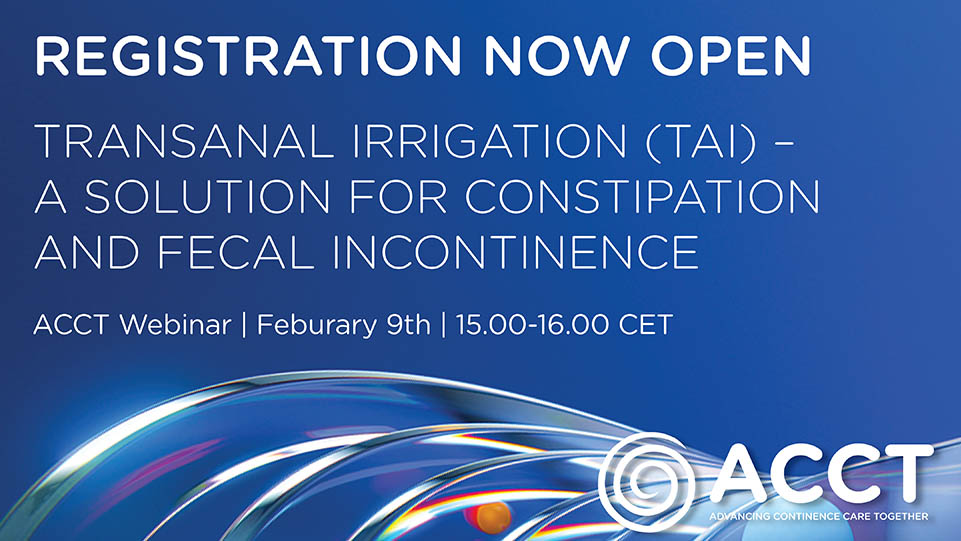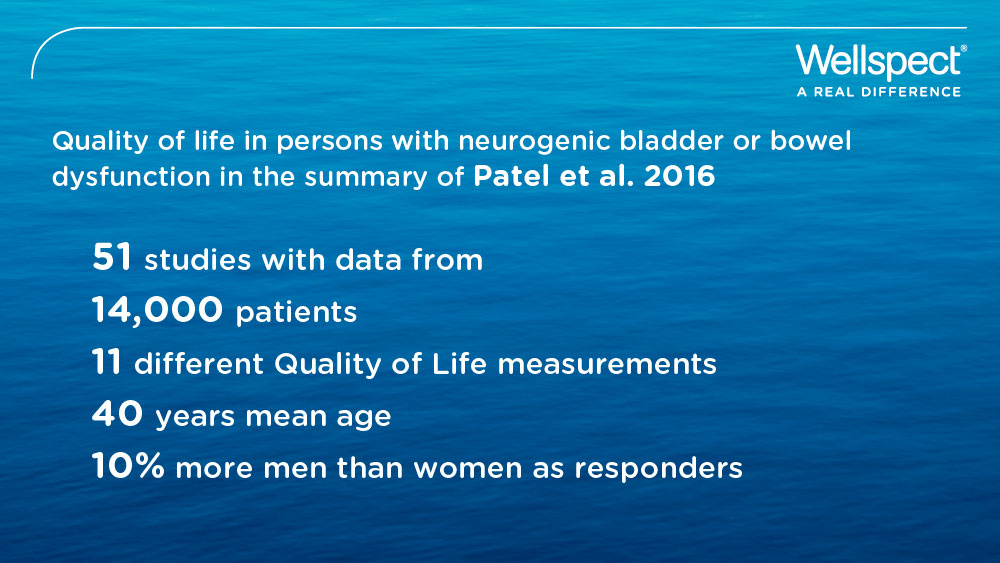On Tuesday, February 9th the ACCT Webinar: Transanal irrigation (TAI) – a solution for constipation and fecal incontinence took place. During one hour we heard Professors Jan Tack and Anton Emmanuel together with Clinical Nurse Lead Bev Collins discuss how Transanal Irrigation (TAI) could be a possible management option for a wider group of patients and how to improve adherence to the therapy. Here are some highlights from the event.
Read MoreTopics: Bowel management, Neurogenic bowel, ACCT, Transanal Irrigation
We do. At Wellspect, bladder and bowel problems are at the center of our endeavors, and we've made it our mission to remove the stigma around these issues and spread knowledge about the available solutions. One of these is transanal irrigation (TAI). In our ACCT Webinar on February 9th, 15:00-16:00 CET, we have put together an educational program that covers transanal irrigation as a possible therapy to manage constipation and fecal incontinence, with examples taken from the latest scientific research. Don’t miss it!
Read MoreTopics: Advancing Continence Care Together (ACCT), Webinar, TAI
Bladder and bowel symptoms are known to reduce quality of life and are rated a severe life problem in persons with SCI. This study was undertaken to identify women’s experiences living with spinal cord injury and neurogenic bladder and bowel.
Topics: Bladder and bowel interaction, Neurogenic bladder, Neurogenic bowel, Women's health, quality of life
Neurogenic bladder and bowel dysfunction has a significant impact on quality of life and well-being. To increase quality of life, treatments should be based on patient reported outcomes. Read more about this and other conclusions in a literature review by Patel et al.
Topics: Bladder and bowel interaction, Neurogenic bladder, Neurogenic bowel, quality of life
TAI is a proven therapy for irrigating the bowel – thousands of users have found effective relief from their bowel issues, and it even promotes better bladder health. But adherence in the initial training stage of adoption can often see users back out and return to less effective, but familiar strategies for managing the bowel. How to address these obstacles? In this case study, we look at how one user returned to TAI with consistent adherence.
Read MoreTopics: Neurogenic bowel, Navina Smart Data, TAI








